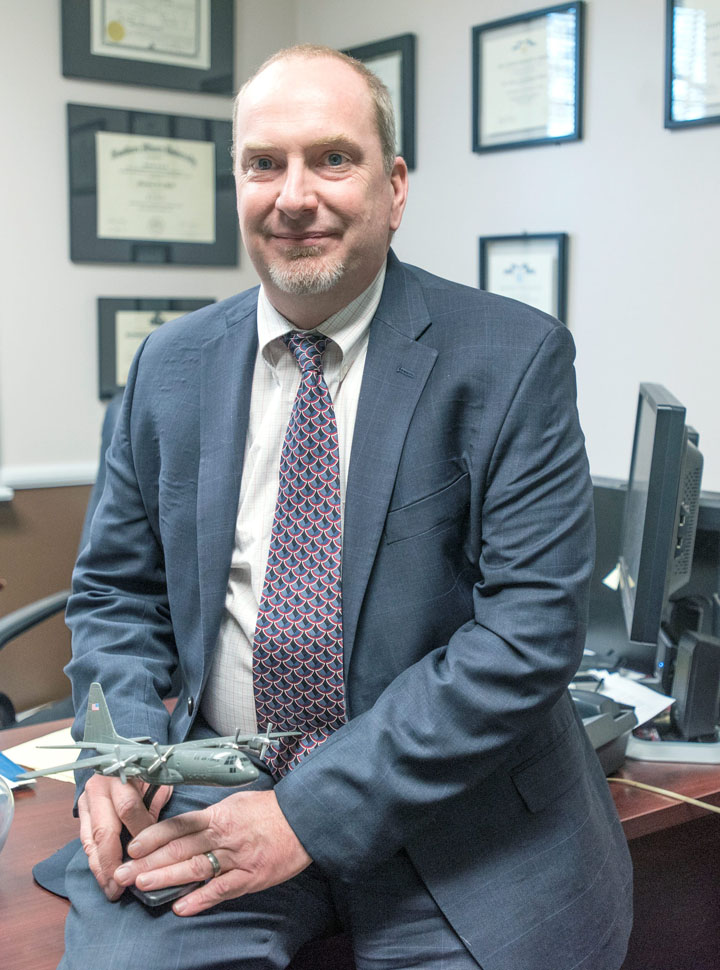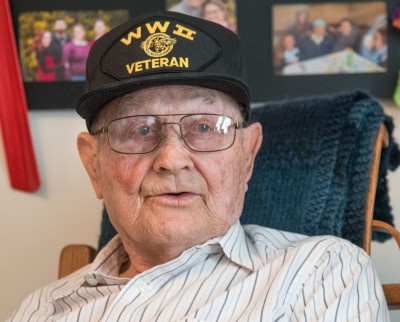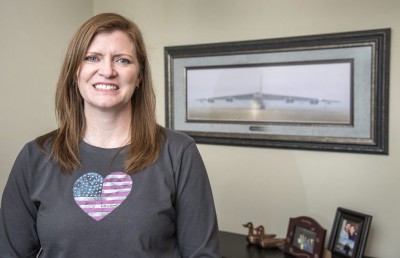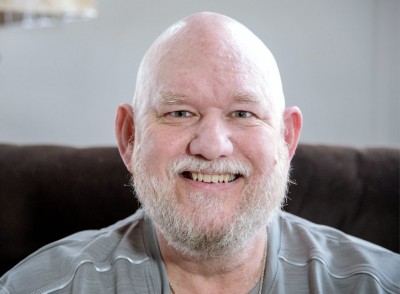Matthew Peek
By Paul Wood

Photo By Stephen Haas/The News-Gazette
CHAMPAIGN — Staff Sgt. Matthew Peek was an eye — and ear — in the sky.
For 11 years in the Air Force, he flew in intelligence-seeking planes gathering data from Saudi Arabia to Panama City.
Even though it has been 17 years since he left the service, the Champaign attorney can’t talk about some of his work as an airborne linguist and cryptographer.
He was a crew member aboard RC-135 Rivet Joint, E-3 AWACS and C-130Hs, coding and decoding messages and intercepting transmissions from foreign powers and from drug traffickers.
But he’ll never forget a short trip where his plane’s four engines began to fail one by one.
Offutt Air Force Base near Omaha can be lot like Champaign, he said — “cold and windy.”
One December, the crew waited three days for an RC-135 reconnaissance plane to gets its hydraulics warmed up and get off the ground.
A half-hour into the flight, it had its first airborne refueling, and almost immediately, an engine went out.
“It could have been icing or one of many other things,” Peek said.
The RC-135 could continue to fly with the loss of one engine, but as time passed, a second and third failed, and the plane had to turn back to Offutt only a couple of hours into its flight.
Another problem: with engines not burning fuel, the tanks were full, and with all the explosive fuel, the plane had turned into a bomb.
Reluctantly, the crew had to dump much of it.
Landing at Offutt, the final shoe dropped: its last engine went on the fritz.
It was the tensest time he dealt with airborne as Peek amassed over 4,000 flight hours in 11 years.
He grew up in Dallas, before moving with his family to Illinois in 1986. When he joined up in 1988, the art major was promised a position as a graphic artist.
That would have taken him to Chanute Air Force Base in Rantoul.
“But then they closed the base,” he said. “I became a linguist instead.”
Peek was sent to the prestigious Defense Language Institute in Monterey, Calif., for seven months.
“Spanish is a Category 1 language,” he said, meaning easier to learn than, say, Chinese.
He spent six hours a day, five days a week in intensive training, with an emphasis on language that might be used in a military context,
Next: Intelligence school at Goodfellow Air Force Base in San Angelo, Texas, and survival school at Fairchild Air Force Base in Spokane, Wash.
Temporary duty assignments took him to Roosevelt Roads Naval Station, a former Navy base in Puerto Rico, and Tinker Air Force Base, Oklahoma City, where he was during the domestic terrorist truck bombing at the Murrah Federal Building in 1995.
But his longest service was in Panama City, where his daughter was born and he encountered the red tape registering her birth that he says would never take place in the United States.
“I learned to appreciate the efficiency and freedom we have in our country,” Peek said. “I think it made me more patriotic.”
There was often a cloak of secrecy about his work.
“I used to fly a lot out of Panama with AWACS crews from Alaska. For reasons of discretion, I had patches for their squadrons, so I would blend in with the normal crew,” he said.
Peek also served in countries from the steaming (Riyadh, Saudi Arabia) to the freezing (Cold Lake Air Force Station in Alberta, Canada).
Besides seeking military intelligence, he was on a force seeking information on drug trafficking.
“The last summer I was in the Air Force, I was the program manager for a small team of folks involved in counter-drug operations throughout the Caribbean basin, Central and South America,” Peek said.
“During those three summer months, we were part of a major effort that resulted in the interdiction of more than $250 million in illegal drugs, aircraft, surface vessels and cash — and many arrests.”
Peek keeps up with several of his co-workers in the intelligence field and recalls his service as a pleasant time.
But 11 years was enough, and after a few years serving as a court translator for Spanish-speaking defendants in area court, he graduated from Southern Illinois University’s College of Law, now working in Champaign.
Do you know a veteran who could share a story about military service? Contact Paul Wood at pwood@news-gazette.com.
Read more stories from local veterans:
 Paul Rector
SAVOY — New Guinea and the Philippines were not safe places to be as the Allies pushed back Japanese forces in World War …
Paul Rector
SAVOY — New Guinea and the Philippines were not safe places to be as the Allies pushed back Japanese forces in World War …
 Lizabeth Wenzel
MAHOMET — Lt. Col. Lizabeth Wenzel flew an un-manned flight. She was part of a “chick flight” on a B-52, all five crew m …
Lizabeth Wenzel
MAHOMET — Lt. Col. Lizabeth Wenzel flew an un-manned flight. She was part of a “chick flight” on a B-52, all five crew m …
 Steve Stanley
URBANA — Staff Sgt. Steve Stanley had top-secret clearance, and was assigned to a secure area from which tactical nuclea …
Steve Stanley
URBANA — Staff Sgt. Steve Stanley had top-secret clearance, and was assigned to a secure area from which tactical nuclea …